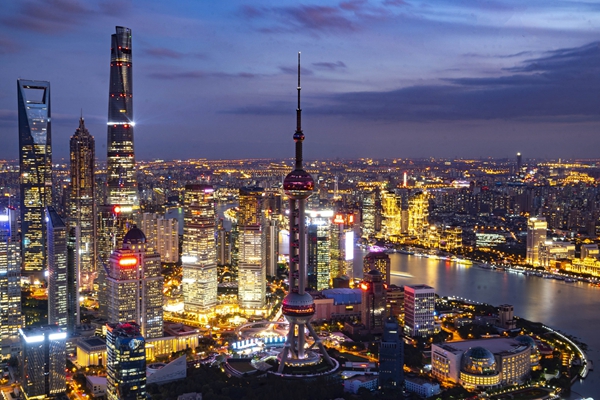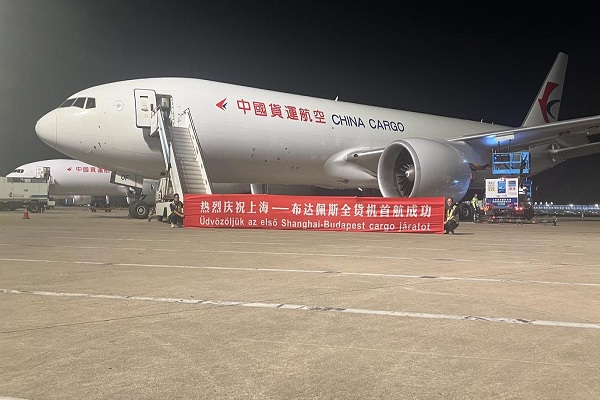Shanghai working for post-pandemic economic recovery

An aerial view of the Lujiazui area in Shanghai. [Photo/Xinhua]
During the past few months, the world has witnessed the spread of the COVID-19 pandemic, leading to disrupted production and isolation of people, resulting in great negative impacts on global economy.
China has become the first country to bring the contagion under control and brought the economic system back onto a track to normalcy by gradually lifting the lockdown policies, which has contributed a lot to the post-pandemic economic recovery being felt across the world.
In addition to policies adopted at the national level to propel economic growth, various measures have been taken by local governments, and Shanghai is one of the cities that have been actively fueling a fresh economic boom in terms of domestic consumption, construction of new infrastructure, foreign investment and international trade.
Shanghai unveiled the Yangshan Special Comprehensive Bonded Zone on May 16, marking another major step forward in the national commitment to deeper and overall opening-up.
Located in the Lingang Special Area of the China (Shanghai) Pilot Free Trade Zone, Yangshan was approved for an upgrade into a special comprehensive bonded zone by the State Council last Jan 17.
As China's first and only special comprehensive bonded zone, it will be of great significance for enterprises to better deal with the adverse effects of the COVID-19 pandemic, and to turn the crisis into an opportunity to improve competitiveness in international markets.
The Yangshan Special Comprehensive Bonded Zone is being promoted through a special supervision guideline to implement opening-up policies and mechanisms competitive worldwide.
One of the measures is to remove unnecessary trade supervision, permits or processes while taking safety and efficiency as the top priority. In addition, the customs declaration system will be simplified to the greatest extent to highlight management freedom.
Customs statistical methods will be upgraded as well, creating more room for the development of international transfer services.
The launch of the Yangshan Special Comprehensive Bonded Zone is not the only initiative Shanghai has adopted to boost its economy amidst the global recession caused by COVID-19. One month ago, Shanghai also issued an action plan to promote development of the online new economy, focusing on 12 crucial areas such as unmanned factories, industrial internet and online health care.
The outbreak of COVID-19 disrupted production and changed the way that people live, but the online economy has been boosted and thrived in recent months. By implementing the action plan, Shanghai aims at developing online new economy into a new driver for economic recovery after the pandemic, with a purpose to attract more than 100 innovative companies with core technologies, independent intellectual property rights and international competitiveness to invest and locate in Shanghai this year.
Moreover, Shanghai municipality has also started a two-month-long shopping carnival, called May 5 ("Double Five") Shanghai Shopping Festival, to help stimulate consumer spending and reduce the economic impact of the pandemic.
With the global economy in turmoil, China is in a unique position to lead the post-COVID-19 recovery. Shanghai, as the most dynamic city in the country, is taking the lead to work on this aspect.
It has greatly boosted its economic confidence by rolling out an array of economic stimulation packages, such as policies to promote consumption in terms of leisure activities, automobile purchases, information and home refurbishment, as well as measures to further open its economy, while stepping up efforts to bring the local economy back to normal.
More importantly, adapting to the changed economic environment, Shanghai has been carrying out action plans to promote new economic growth drivers which prioritize the development of "new infrastructure," such as 5G networks, NEV charging stations and energy efficiency programs.
In a word, Shanghai is well prepared and working for the post-COVID-19 recovery.

